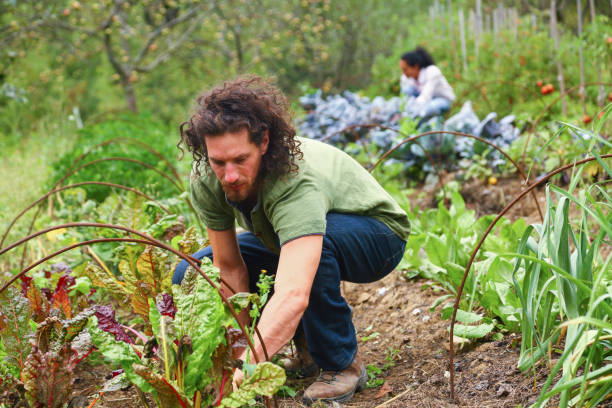Practical Agriculture Courses for Sustainable and Regenerative Farming
Choosing the right agriculture courses can transform a hobby or family farm into a resilient, productive enterprise. Courses focused on sustainable agriculture, organic methods, and regenerative principles equip learners with practical skills — from soil health and pest management to business planning and market access — that apply across scales and climates, whether you seek local services, community programs, or online training.

What is sustainable agriculture?
Sustainable agriculture emphasizes long-term productivity while protecting the environment and supporting rural communities. Courses on sustainable agriculture cover integrated pest management, nutrient cycling, water conservation, and biodiversity-enhancing practices. Learners study how to balance yields with ecosystem health, measure impacts, and design systems that reduce chemical dependence. These programs are useful for farmers, extension agents, and land managers who want methods that maintain productivity without degrading soil, water, or habitat.
How does farming course content vary?
Farming courses range from introductory farm skills to advanced technical modules. Basic programs teach planting calendars, crop rotation, machinery safety, and record keeping. More advanced courses delve into precision farming, greenhouse production, livestock integration, and farm financials. Course length varies from short workshops to certificate programs. Many emphasize hands-on learning through field days, internships, or demonstration plots so participants can apply techniques directly to their land, community garden, or smallholding.
What training formats are available?
Training can be classroom-based, online, or hybrid, with options tailored to different learning styles and schedules. Online modules offer flexibility for those balancing work or family responsibilities, while in-person practicums and apprenticeships deliver tactile experience. Community colleges, agricultural extension services, NGOs, and private training providers often partner to offer mixed formats. Look for programs that include mentorship, peer networks, and access to local services or demonstration sites to reinforce classroom lessons with real-world practice.
How do organic farming courses differ?
Organic farming courses prioritize chemical-free production, soil-building techniques, and certification basics. Topics often include composting, cover cropping, biological pest control, and recordkeeping for organic certification standards. Courses that prepare students for certification exams or provide guidance on transitioning conventional fields to organic systems are especially valuable. Organic training is practical for growers targeting specialty markets, local food systems, farmers’ markets, or direct-to-consumer sales where organic labeling and transparency add value.
Why study regenerative agriculture?
Regenerative agriculture focuses on restoring and enhancing ecosystem processes to rebuild soil organic matter, increase biodiversity, and sequester carbon. Training in regenerative agriculture covers no-till or reduced till, multispecies cover crops, agroforestry, holistic grazing, and designing landscapes that mimic natural systems. Courses often measure outcomes like soil carbon, water infiltration, and ecosystem resilience. This approach appeals to practitioners aiming to reverse degradation, improve farm profitability through resilience, and contribute to broader climate adaptation and mitigation goals.
Conclusion
Agriculture courses that emphasize sustainable agriculture, organic farming, and regenerative agriculture equip learners with the knowledge to improve productivity while protecting resources. Whether you are a beginning farmer, an experienced producer looking to transition systems, or a service provider offering local services to rural communities, training options exist to suit different needs and timelines. Practical elements — hands-on practice, mentorship, and site-based learning — are critical to turning course knowledge into effective on-farm action. As you evaluate programs, consider the balance of theory and practice, the relevance to your climate and scale, and opportunities for follow-up support and peer learning. Good training builds skills in soil health, integrated pest management, diversified rotations, and farm business planning, enabling participants to implement approaches that are productive, resilient, and better aligned with environmental stewardship.






